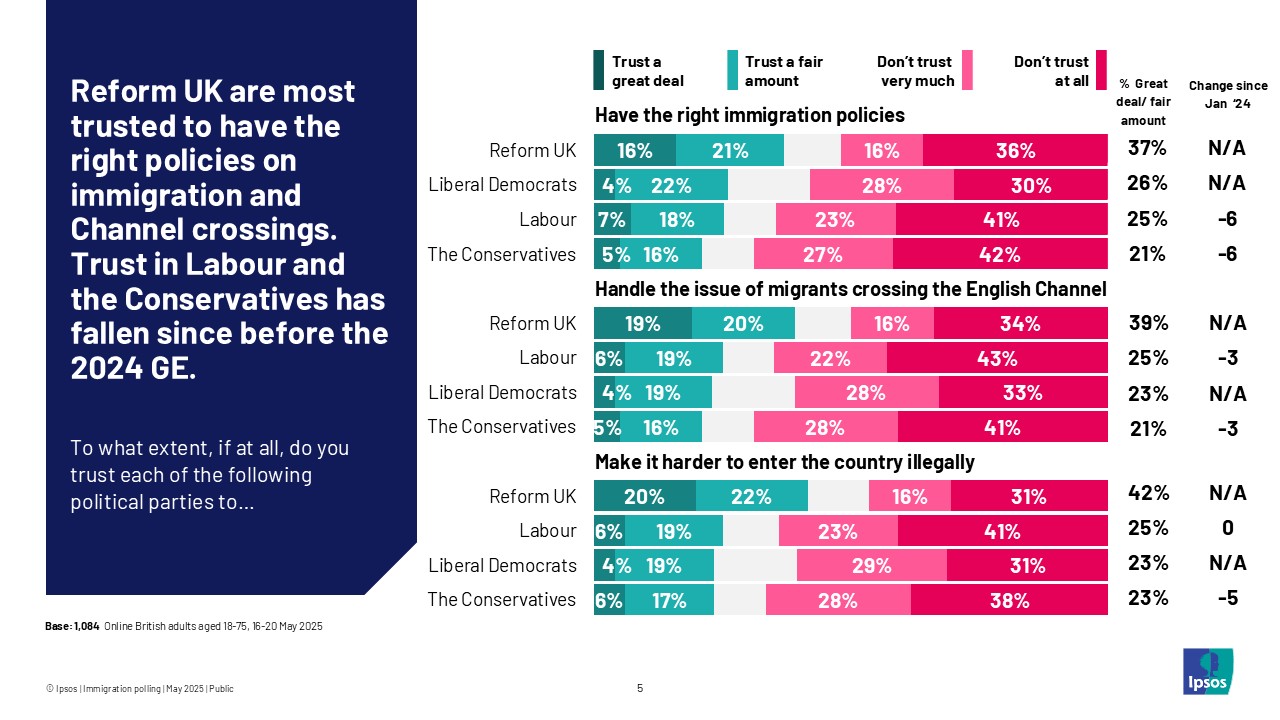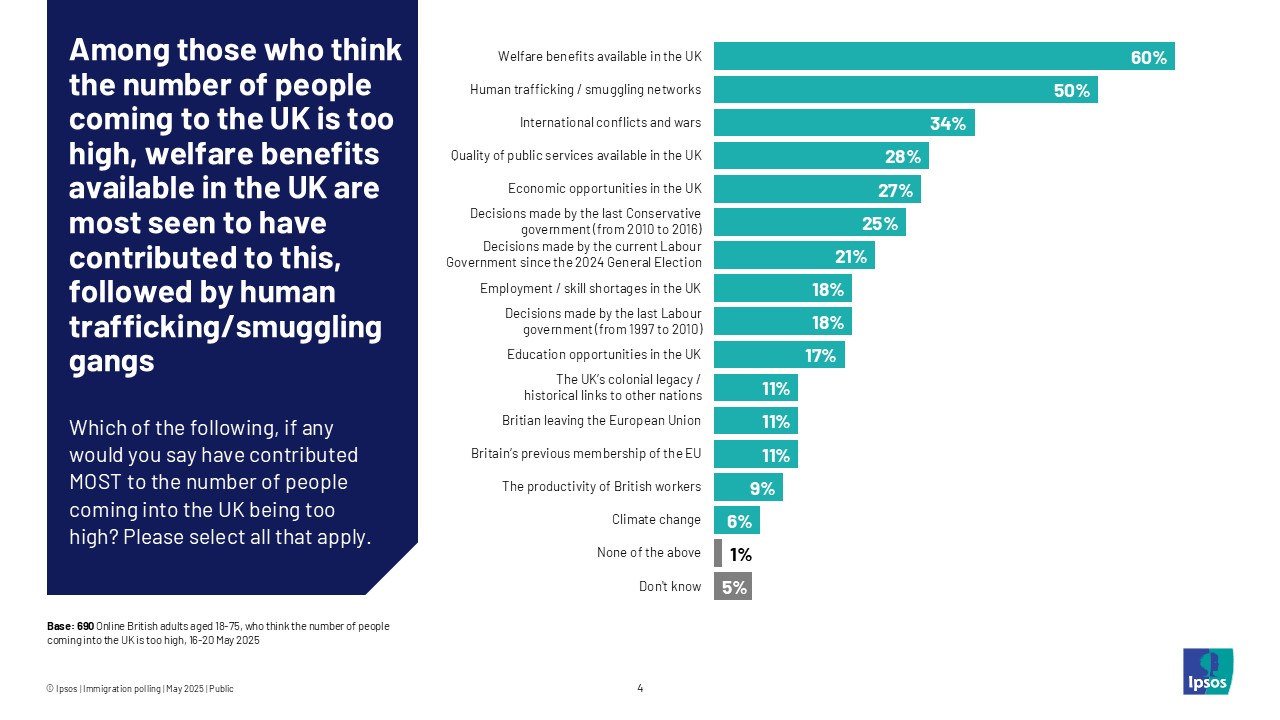Reform UK and Farage most trusted on immigration as confidence in Labour and Conservatives falls
A new Ipsos in the UK poll reveals that Reform UK is trusted the most to have the right policies on immigration, and its leader Nigel Farage is the most trusted party leader on the issue. Fieldwork was conducted from the 16th-20th of May, in the aftermath of the release of the government’s immigration white paper.
Key findings
- Trust in political parties on immigration: Reform UK enjoys the highest level of trust when it comes to having the right immigration policies (37%), handling migrant crossings of the English Channel (39%), and making illegal entry more difficult (42%). Around 1 in 4 trust Labour and the Liberal Democrats on these issues, while the Conservatives rank last on all three measures. Trust in both the main political parties – Labour and the Conservatives – has declined steadily since 2023.

- Trust in political leaders on immigration: Reform UK leader Nigel Farage is the most trusted political leader on immigration policies (28%), followed some way behind by Prime Minister Keir Starmer (15%). Leader of the Opposition Kemi Badenoch is on 6%. Notably, a quarter (26%) of the public trusts none of the main party leaders on this issue. Among Conservative 2024 voters, as many trust Farage (28%) as Badenoch (29%).
- Immigration levels: Two-thirds (67%) of British adults believe the total number of people entering the UK is too high, the same percentage as last month. Just 5% think it is too low, while 18% say it is about right.
- Factors contributing to high immigration: Among those who believe immigration levels are too high, welfare benefits available in the UK (60%) are seen by most as a key contributing factor, followed by human trafficking/smuggling networks (50%) and international conflicts and wars (34%).

- Yvette Cooper's performance as Home Secretary: A third of British adults (33%) disapprove of Yvette Cooper's performance, while 17% approve (25% neither). These figures are slightly better than James Cleverly’s in January 2024, though in line with former Conservative Home Secretary Suella Braverman's ratings in May 2023.
Commenting on the findings, Gideon Skinner, Senior Director of UK Politics at Ipsos, said:
Our polling demonstrates that the public continue to have little trust in the main political parties and their leaders on the issue of immigration, and if anything, it is eroding further over the last year. Instead, Reform UK is emerging as clearly the most trusted, albeit among a fragmented landscape – indeed, Conservative 2024 voters have as much trust in Nigel Farage on the issue as their own party leader Kemi Badenoch. The majority of the public – including supporters of all parties - continues to think that the overall number of people entering the country is too high, although we know that there is nuance underneath this, with different types of immigration (and asylum) viewed differently. Nevertheless, public concern over their perceived drivers of too high immigration – especially Britain’s welfare benefits and human trafficking/smuggling gangs – will need to be considered by the government as they navigate the response to the immigration white paper. It also remains to be seen whether or not the recent news of a fall in net migration – announced after this fieldwork – will have an impact on the high levels of public concern, or whether long-standing dissatisfaction with governments from both sides will continue.
Technical note:
- Ipsos interviewed a representative sample of 1,084 adults aged 18-75 across Great Britain. Polling was conducted online between the 16th and 20th of May 2025.
- Data are weighted to match the profile of the population. All polls are subject to a wide range of potential sources of error.




